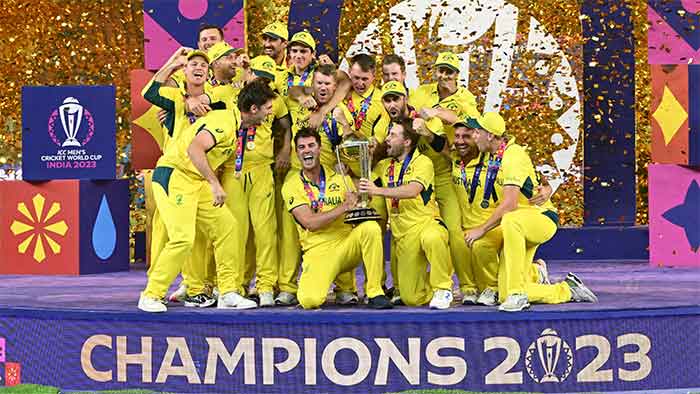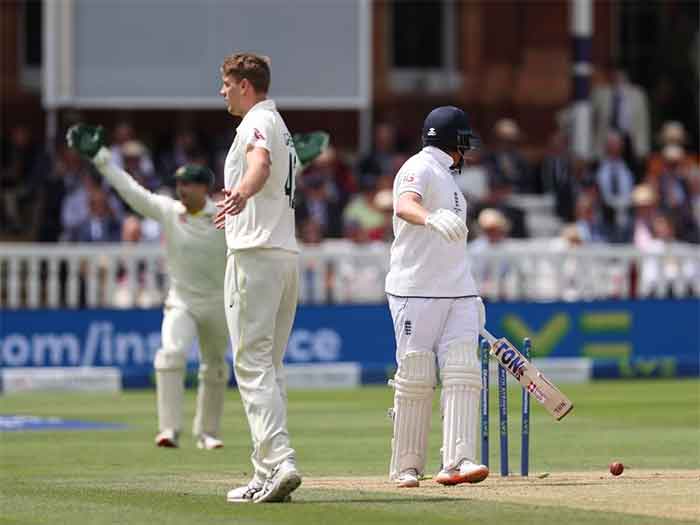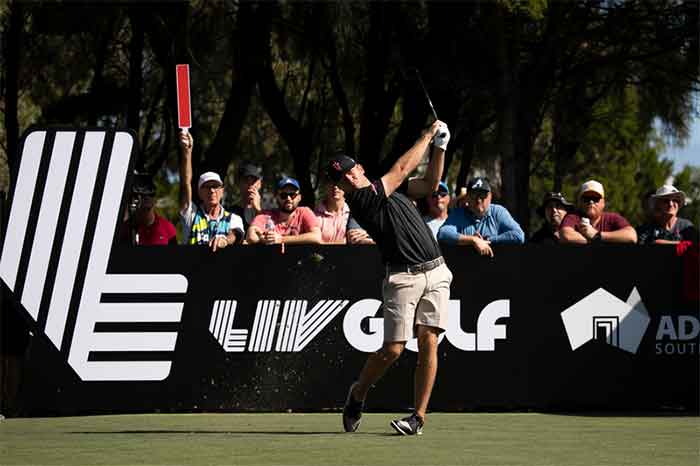
More sad than the cheap jingoism and unsporting behaviour we witnessed in the world cup cricket final in the Narendra Modi stadium on November 19 is the collaborative approach from some of our intellectuals.
We expect a serious critical analysis from them. But what we have is the very opposite, boosting , justifying the phenomenon of sports nationalism in a subtle way.
Dipankar Gupta, described as a sociologist and public intellectual, wrote on sports in an extremely questionable way to say the least in an edit page article in the Times of India of November 14, a few days before the final.
He wrote as if everything is right with our sports, ignoring our bad governance, pitiable status in world sports and has no word of criticism for the establishment. He argues that sports is the right subject for boosting nationalism. It is better than war driven nationalism.
He is completely evading real issues affecting the world of sports. One expects better from a sociologist, even an ordinary one. Apparently people in the profession still look upto him, I heard his name being mentioned during the release of the book on the Indian village by Surinder Jodhka at IIT in Mumbai a few days ago.
It is not that the ill effects of false nationalism in sports were not known , they were too obvious in fact.
The first semifinal in the 1996 world cup in Kolkata was abandoned due to unruly crowd behavior. The match between India and Sri Lanka was awarded to Sri Lanka after bottles were thrown into the ground and stands were set on fire. India’s chase got off to a poor start and a collapse triggered chaos in the stadium. The stands were burnt, the sky was lit up.
Over the years sports has been corrupted more by capitalists and politicians and some other crooks.
BCCI, the board for control of cricket in India is now one of richest sports bodies in the world and is highly tainted. It is notorious for avoiding tax and it is being exempted on the ground of promoting the game in India. Cricket in the world is now virtually rigged by BCCI and the cricket establishments in England and Australia
Mr Dipankar Gupta does no credit to himself with his blind support to sports nationalism. Intellectuals are expected to speak truth to power, not join in the game of conformism of the worst kind.
Worse is coming our way in cricket.
Saudi Arabia has expressed interest in buying a multibillion-dollar stake in the Indian Premier League (IPL), the world’s richest cricket league..
Saudi Arabian Crown Prince Mohammed bin Salman’s advisers have spoken to Indian government officials about moving the IPL into a holding company valued at as much as $30 billion, the report said.
There is a phenomenon called sportswashing which means dictatorial regimes seek to refurbish their image by investing in a big way in sports. In India some extremely dubious people control over sports bodies.
So everything is wrong with much of sports everywhere with the involvement of big money and I see constantly so much criticism of world sports and its domination by capitalism in much of the media, in books.
We expect a serious critical analysis from our intellectuals. But what we have is the very opposite, boosting , justifying the phenomenon in a subtle way.
Dipankar Gupta, described as a sociologist and public intellectual, wrote on sports in an extremely questionable way to say the least in an edit page article in the Times of India of November 14. He wrote as if everything is right with our sports, ignoring our bad governance, pitiable status in world sports and has no word of criticism for the establishment. He argues that sports is the right subject for boosting nationalism. It is better than war driven nationalism.
He is completely evading real issues affecting the world of sports. One expects better from a sociologist, even an ordinary one.
I found a far better analysis, understanding of the sports scenario from a student Yashee Jha in a news portal https://www.news18.com/…/opinion-commercialisation-of…
Qatar represents a prime example of sportswashing, it has sought to whitewash its deplorable human rights record with the holding of world cup football.
In more recent years, Qatar has also become one of the world’s leading arms importers, with the regime’s military muscle now provided by the United States, France and other western suppliers. These include the UK, whose contribution includes a fleet of Typhoon military jets. And with its al-Udeid airbase playing host to the forward headquarters of the US military’s Central Command, Qatar sits right at the heart of western power projection into the Gulf, as it has done for more than 100 years, as one article pointed out. Of course, that alliance is just the tip of the iceberg in terms of global capitalism’s efforts to suck the soul out of football and eradicate any remnants of primordial joy by monetising and commodifying everything on and off the field. Given the deluge of corporate propaganda that we call “sponsorship”, the uninitiated football spectator would be forgiven for thinking Adidas was a football team – or that matches are waged between Emirates and Etihad airlines.
And there’s nothing like sponsoring football’s biggest competition to improve one’s international branding.
In his book, El Fútbol a sol y sombra (Football in sun and shadow), first published in 1995, the renowned Uruguayan writer and die-hard football fan Eduardo Galeano remarked how every footballer had become an “advertisement in motion”- though not everyone was happy with that arrangement. In the mid-1950s, he recalled, when the prominent Montevideo club Peñarol had endeavoured to impose company advertising on its shirts, 10 members of the team had obediently taken to the field with the updated jerseys while Black player Obdulio Varela had declined: “They used to drag us Blacks around with rings in our noses. Those days are gone.”
To be sure, it’s never just fun and games when obscene quantities of money are involved. Take the case of Horst Dassler – the son of Adidas founder Adi Dassler, himself charmingly a former member of the Nazi Party – who in 1982 started a company called International Sports and Leisure, which promptly acquired exclusive marketing and TV rights to FIFA operations, including the World Cup. This was done by paying bribes to then-FIFA President João Havelange – the same Havelange who had graciously appeared alongside Argentine dictator Jorge Videla during the 1978 World Cup in Buenos Aires.
That dictatorship was ultimately responsible for murdering or disappearing some 30,000 suspected leftists in a seven-year dirty war that was green-lit by – who else? – the United States, which was always eager to have more maleficent right-wing regimes on board in its quest to make the world safe for capitalism.
In 1998, Havelange was replaced by Sepp Blatter, who has also been accused of rampant vote-buying and manipulation of financial data and who, according to Galeano, made Havelange look like “a Sister of Charity”. Galeano died in April 2015, a month before the US Department of Justice sensationally busted fourteen FIFA officials and corporate executives on corruption charges, with US Attorney General Loretta Lynch lamenting that the individuals had “corrupted the business of worldwide soccer to serve their interests and enrich themselves”.
But as the US well knows, corrupt self-enrichment and corporate impunity are business as usual in capitalism – which has also produced a “gentrification” of the sport itself, as researchers have shown. A study published by the Royal Society in December 2021 found that the “excessive monetisation of football” had led to increasing inequality between teams in major European leagues and a growing predictability of match outcomes. Even as those responsible for the sport’s governance claim to be globalising football, in reality, the process replicates the inequality endemic to corporate globalisation.
Indeed, the very spirit of professional football has been corrupted by the conversion of the sport into an industry – resulting in a regimented and technocratic game that aims to turn players into robots. As Galeano put it, this approach to football “forbids all fun”; in the interest of maximised productivity and increased profit, it “negates joy, kills fantasy, and outlaws daring”. Magic, after all, is not profitable, as an article by Al Jazeera points out.
Mercifully, however, there have always been folks who refuse to get with the programme. In Galeano’s view, Brazilian footballer Mané Garrincha, born into poverty in Rio de Janeiro in 1933, was hands-down the player who brought the most happiness to audiences in the entire history of football, turning the game into an “invitation to a party”. So much for the doctors who pooh-poohed the prospect of any athletic future for “this misshapen survivor of hunger and polio… with the brain of an infant, a spinal column like an S and both legs bowed to the same side”. (Capitalism won in the end, and Garrincha died, poor and alone, in 1983.)
Argentina’s football virtuoso Diego Maradona, also from the wrong side of the tracks, defied boundaries, too – including by denouncing the tyranny of television in sport, advocating for labour rights in football, demanding financial transparency from football clubs, supporting the Palestinian cause, and generally driving the powers that be up the wall. On the field, he continued injecting old-school magic into modern mediocrity until he was expelled from the 1994 World Cup.
Vidyadhar Date is a senior journalist and author of a book calling for democratisation of human mobility, transport















































